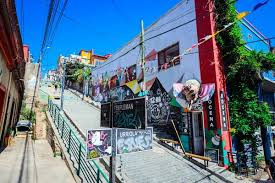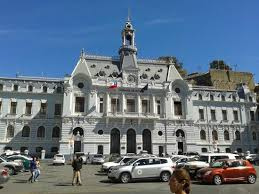How do residents feel about the gentrification of Valparaíso?

How do residents feel about the gentrification of Valparaíso?
How do residents feel about the gentrification of Valparaíso? Gentrification in Valparaíso has become a complex and often contentious issue, influencing the city’s landscape, economy, and community dynamics.
As artistic and commercial interest in the city grows, the feelings of residents towards gentrification vary widely. Here’s a closer look at how residents perceive this phenomenon.
Mixed Emotions
Many residents have mixed feelings about gentrification, recognizing both its positive and negative impacts.
On one hand, increased investment can lead to improved infrastructure and amenities; on the other, it often results in rising living costs and displacement.

Cultural Concerns
Some residents express concerns about losing the city’s unique cultural identity amid gentrification.
As upscale businesses and luxury developments emerge, there is a fear that traditional neighborhoods and local customs may be overshadowed or erased.
Economic Opportunities
Others view gentrification as a potential economic boon, bringing new businesses and job opportunities.
The influx of tourists and higher-income residents can revitalize the local economy, benefiting some sectors and creating employment in hospitality and retail.
Housing Affordability
Rising property values and rents are significant worries for many long-term residents.
As wealthier individuals move in, the cost of living increases, making it challenging for lower-income families to remain in their neighborhoods.
Community Engagement
Some residents actively engage in discussions about gentrification, advocating for policies that protect affordable housing and local businesses.
Community groups often organize to raise awareness of these issues and push for inclusive development strategies.
Perceptions of Change
While some embrace the changes brought by gentrification, seeing them as progress, others feel a sense of loss.
Long-time residents may find it difficult to adapt to the rapid changes in their neighborhoods, leading to feelings of nostalgia and frustration.
Tourism vs. Local Needs
The growing tourism industry, often a byproduct of gentrification, can create tension between visitor interests and local needs.
Some residents feel that tourist-oriented developments prioritize short-term gains over the long-term well-being of the community.
Artistic Influence
Valparaíso is known for its artistic community, which can both drive and resist gentrification.
Artists may appreciate the attention and funding that come with gentrification but also recognize the risk of losing affordable studio spaces and cultural hubs.
Policy Advocacy
Many residents advocate for policies that encourage balanced development.
They seek initiatives that prioritize affordable housing, protect local businesses, and ensure that the benefits of gentrification are shared among all community members.
Future Outlook
Looking ahead, residents express a desire for a more inclusive approach to development.
Balancing economic growth with cultural preservation and community needs remains a priority for those concerned about the impacts of gentrification.
In summary, residents of Valparaíso hold diverse opinions on gentrification, reflecting a complex interplay of concerns and aspirations.
While some view it as an opportunity for economic revitalization, others worry about rising costs and cultural displacement.
As the city continues to evolve, ongoing dialogue and community engagement will be essential to navigate the challenges of gentrification while preserving Valparaíso’s unique identity.

![]()




Leave a Reply